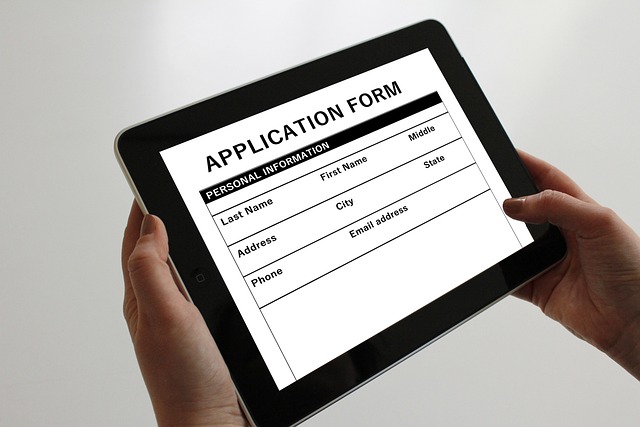Disabled Veteran Benefits Guide

Military Benefits for Disabled Veterans
There are various benefits for disabled veterans at the state and local levels. In addition to these benefits, there are federal protections for disabled veterans defined by two laws; the Americans With Disabilities Act and the Uniformed Services Employment and Reemployment Rights Act, also known as USERRA.
Disabled veterans are a “protected class” in American society; they receive special consideration under the law, are offered hiring preference for state and federal jobs, and may claim tax breaks or other benefits.
Who Qualifies as a Disabled Veteran?
But what is the definition of a disabled veteran, and how do you claim the benefits offered?
There are multiple definitions, but among the most relevant for this article, the Americans with Disabilities Act defines a person with a disability as someone who
- Has a physical or mental impairment that substantially limits one or more major life activities;
- Has a record of an impairment;
- is “regarded as having an impairment.”
How the Department of Veterans Affairs Defines a Disabled Veteran
VA.gov defines disabled veterans as those “who got sick or injured while serving in the military and to Veterans whose service made an existing condition worse.”
VA disability benefits may be approved for physical issues, mental health conditions, and these issues may have developed “before, during, or after” military service.
If you have not explored your VA benefit options in a while, it may be smart to revisit them; federal laws have changed important aspects of the VA disability rating system, and thousands of veterans who had past claims denied by the VA are revisiting or resubmitting those claims thanks to new federal laws.
Learn more: The PACT Act and Your VA Benefits
Claiming VA Benefits
The Department of Veterans Affairs has revised its policies for claiming VA medical benefits.
Military discharges that previously did not qualify are now reviewed and approved in cases where the military discharge was discriminatory (such as those under Don’t Ask, Don’t Tell), poorly informed, or had aggravating circumstances such as combat trauma, mental health issues, being a survivor of discrimination or military sexual assault, and other issues.
If you were denied VA benefits on the basis of your military discharge, the VA encourages you to apply again. You may have more access to VA healthcare options now than in the past.
Learn more: VA Expands Healthcare Program to Some Without Honorable Discharges
To claim federal-level VA disability benefits, the definition is different; the veteran must submit a claim for service-connected or service-aggravated medical issues, be evaluated by the Department of Veterans Affairs, and be assigned a VA disability rating for the conditions reviewed. Requirements to draw state-level disabled veteran benefits may vary.
Related: VA and DoD Streamline Disability Claim Exam Procedures
Federal Benefits for Disabled Veterans
There are many federal benefits for disabled veterans, starting with the best-known (VA compensation for service-connected medical issues) to some of the least-utilized options.
A short list of VA disability benefits includes (but is not limited to) the following:
- VA education benefits for disabled veterans
- VA grants to adapt a home
- Waiver of the VA loan funding fee
- Veteran Pension
- Aid and Attendance benefits
- Tax consideration for disabled veterans
Related: Enhanced Benefits for Disabled Veterans: The AUTO Act
Am I Eligible for VA Disability Benefits?
You may be eligible for VA disability benefits or compensation if you have a service-connected current illness or injury and you served qualifying time on active duty, active duty for training, or inactive duty training.
In addition to the above, you must meet one of the following requirements. According to VA.gov;
- You were injured or became ill while serving in the military, and the condition is service-related or;
- You had an illness or injury before you joined the military, and serving made the problem worse, or;
- You have a disability related to your active-duty service that didn’t appear until after you ended your service.
Related: Do You Need Help Filing a VA Disability Claim?
VA Disability Compensation Rates
The Department of Veterans Affairs assigns disability rates and the compensation for those rates based on a percentage scale.
For example, those who apply for VA disability benefits may be assigned a VA rating of 0% (no compensation) to 100% (full compensation.)
The lowest VA disability rates (10% and 20%) are paid at a flat rate without consideration of dependents, a spouse, etc. Those rates for 2022 were as follows, but know that these rates are subject to change year to year depending on current legislation, VA policy, and other variables.
Once VA disability ratings hit the 30% range, they are broken down into categories that include veterans with no children but with a dependent spouse, veterans with no spouse but who care for one or both parents and then there are categories for veterans who have a spouse, dependent children, both together, etc.
The benefits are listed between 30% and 60% and between 70% and 100%.
The amount you are paid may increase the more dependents you claim, but your dependents must be registered in DEERS for them to be considered under these payment guidelines.
Read more: VA Disability Rates
>> Frustrated with your VA disability rating? Get help with increasing your rating to get the compensation you deserve.
Entering the VA System to File a Claim
Before you can file a VA claim, it helps to know whether you are eligible to do so. Who can file a claim for VA disability pay?
As mentioned above, those who served on active duty, active duty for training, inactive duty for training, AND who have “a current illness or injury (known as a condition) that affects your mind or body,” according to VA.gov.
If you meet these requirements, you can file for disability using a standard VA form.
If you are applying to the VA for a reconsideration of your VA rating or a VA disability rating increase, you’ll need to use some special procedures to do so. Learn how to apply for an increased VA disability rating before you ask for a reconsideration of your rating.
VA Presumptive Conditions and the PACT Act
For some conditions, the Department of Veterans Affairs “automatically” assumes there is a service connection for certain qualifying medical issues. This affects a significant number of veterans, but in recent years the group known as PACT Act veterans has gotten a lot of attention due to the VA revamping its criteria for certain disability benefits for those who experienced toxic exposures in the line of duty.
The PACT Act offers expanded VA health care options and VA disability pay for service-connected medical issues related to toxic exposures while serving in Vietnam, the Gulf War, and post-9/11.
According to VA.gov, the PACT Act adds a list of presumptive medical conditions associated with exposure to burn pits, Agent Orange, and others. The legislation:
- Adds more presumptive-exposure locations for Agent Orange and radiation
- Requires VA to provide a toxic exposure screening all in the VA health care system
- Extands research and treatment related to toxic exposures
Under VA presumptive condition rules, there’s no need to provide further evidence or documentation that military duty caused those conditions. Not all presumptive conditions are associated with the PACT Act. Some are older and are already on the VA “radar” for such issues and whether or not they are service-connected.
Learn if you are eligible for VA disability compensation.
Veterans Pension
The Department of Veterans Affairs offers a different pension option for qualifying veterans, including disabled vets. This pension is completely unrelated to military retirement pay through High-3, Redux, the Blended Retirement System, etc. Who qualifies?
Those who typically qualify are at least 65 or have a permanent disability. Those receiving long-term nursing home care or getting Social Security may also qualify if they meet other program requirements.
Read more: Who is Eligible for a Veterans Pension?
Federal Income Tax Benefits for Disabled Veterans
Disabled veterans should not include military disability retirement pay, VA disability compensation, or GI Bill benefits in their taxable income for federal income tax purposes. Do you know why?
Read more: Federal Income Tax Benefits for Disabled Veterans
Social Security Benefits for Disabled Veterans
Disabled vets may qualify for both Social Security (SSI or SSDI) and military disability retirement pay. Did you know that Social Security Disability Income is not affected by VA disability payments or military disability retirement pension payments like SSI?
Read more: Social Security Benefits for Veterans
Tips for Applying for VA Disability
When you apply for VA disability benefits, some important milestones must be considered. One is how long you have in your current military service commitment before you retire or separate.
Are you within a full calendar year of your final out-processing appointment? That one-year-out date is very important.
You should consider lining up your out-processing appointments, looking for a new place to live where applicable, and gathering documents to file any VA disability claim you may need to consider once you are one year out or less. Does a year in advance sound too early?
Read more: Five Tips for Applying for VA Disability Benefits
It is not too early to start preparing your claim, considering that you can file a pre-discharge claim with the Department of Veterans Affairs as early as six months out (180 days). It will take time to gather your military and civilian medical records and supporting documentation.
Don’t delay; start your transition as early as possible for best results. Why? You may qualify to get VA disability benefits faster through a program called Benefits Delivery At Discharge.
Related: How to File for a VA Disability Benefits Increase
Who Qualifies for Benefits Delivery at Discharge (BDD)?
You may be eligible to receive VA disability benefits earlier using the BDD program. You may qualify if you meet all of the below, starting with being a service member on full-time active duty (including the National Guard, Reserve, or Coast Guard) and:
- You have a known separation date
- Your separation date is in the next 180 to 90 days
- You’re available to go to VA exams for 45 days from the date you submitted your claim
- You can provide a copy of your service treatment records for your current period of service when you file your claim
Learn more: VA Disability: Benefits Delivery at Discharge
Federal Education Benefits for Disabled Veterans
The GI Bill is offered to all with qualifying uniformed service and to spouses and dependents who have had the benefit transferred to them by an active duty service member.
Disabled veterans have more VA benefit options above and beyond the GI Bill that include the Department of Veterans Affairs Readiness And Employment Program (VR&E), and the VA Work-Study Program.
Read more: VA Education Benefits for Disabled Veterans
VR&E, formerly known as Vocational Rehabilitation and Employment (VOC REHAB), features programs offering veterans services and the support they need to live more independently. Who is eligible to apply for VR&E benefits and services?
Those who have a VA disability rating of 10% or more and don’t have a dishonorable discharge.
Learn more: Vocational Rehabilitation and Employment (VR&E)
VA Work-Study is not a program specifically designed for disabled veterans, but you may find you have hiring preference in some cases as disabled veterans are part of a “protected class” who are often given more consideration at hiring time. Work study lets you get paid as a part-time employee while you attend classes. To qualify:
- You must be enrolled at least three-quarter time;
- You must locate a job “at a nearby VA facility or in a VA-related role at your school,” according to VA.gov;
- You will finish the work-study contract while you still qualify for education benefits;
- You’re using a VA program to pay for your education or training.
Other benefits include a student loan forgiveness program offered by an office of the US Department of Education. This loan forgiveness is for those deemed totally disabled, including veterans.
Survivors and Dependents’ Educational Assistance Program is not for the veteran, it is intended to help the spouses and college-age dependent children of veterans who are permanently and totally disabled or who died on active duty.
These benefits are available to most who use them today for up to 36 months. These benefits can be used in a variety of ways, from traditional classroom education to online learning, on-the-job training, and apprenticeships.
Learn more: VA Survivors’ & Dependents’ Educational Assistance
State Benefits for Disabled Veterans
State benefits for disabled veterans should not be overlooked; some of these benefits offer as much help as federal-level benefits in the same areas (education, jobs, training, home ownership) and may some may even be used concurrently with federal benefits depending on the program.
Sometimes half the battle in claiming state-level military benefits and benefits for disabled veterans is knowing where to look. For federal benefits, the Department of Veterans Affairs official site is a good centralized resource; for state-level benefits, it’s often the same.
Search here for your state-level Department of Veterans Affairs, a separate entity from the federal version.
Some states call this office the Division of Veterans Affairs, and some call it the Office of Veteran Services. Whatever it’s called in your local area, this resource is just as important as the federal VA.
State-level disabled veteran benefits are not the same; depending on what state you live in you may be offered more benefits than others. The types of state-level benefits may include some, all, or none of the following depending on the state:
- State-level GI Bill-type programs
- State-level housing programs for disabled vets
- Adaptive vehicle grants
- Military license plate designation
- Disabled veteran plates and placards
- Homestead tax exemptions
- Income tax exemptions
- Reduced-fee or no-fee recreational licenses
Learn more: Where to Find State Benefits for Disabled Veterans
What to Know About Seeking State-Level Disabled Veteran Benefits
States have their own rules about hiring practices, and your experience may vary depending on the state, the type of employment you seek, and the nature of your military service.
Some job seekers apply for positions in state- and federal-level agencies that may offer hiring preference. There are important things to know about each option, especially if you plan to apply for both simultaneously.
It’s also important to note that you likely won’t find all state-level veteran benefits centralized in one place on the state’s official page’ some programs may be listed under state entities such as a Housing Finance Corporation or state-level Department of Education official site.
Learn more: What to Know About Disabled Veteran Hiring Preference in State and Federal Hiring
Other Benefits for Disabled Veterans
Many local and national businesses offer discounts, free or reduced memberships, and other perks for veterans and disabled veterans.
You can find these military discounts listed together in some cases, or you may find them listed at individual retail sites like Walmart and Target.
In 2020, the federal government modified the rules needed to access on-base facilities like the Base Exchange and Commissary; today, veterans with VA-rated disabilities can use the BX and Commissary as long as they have proper ID (a Veteran Health ID Card) and don’t mind paying a small service charge in some cases.
Base Exchange and Commissary options can be important for military families due to these outlets’ reduced prices offered for food, clothing, and household goods.
Read more: Commissary and Exchange Benefits: What You Need to Know
There are a variety of Veteran Service Organizations, such as the DAV, USO, VFW, and others that assist veterans in filing VA claims, applying for GI Bill or VA home loan benefits, and related services.
But many of these agencies also provide other help; the group Disabled Veterans of America (DAV) offers transportation services for medical care and other needs. The Veterans of Foreign Wars (VFW) offers grants and educational support in addition to helping with VA claims and benefits.
The Department of Veterans Affairs makes it easy to find VA-accredited veteran service organizations near you with a search tool available at VA.gov.
Read more: What are Veteran Service Organizations?
>> Frustrated with your VA disability rating? Get help with increasing your rating to get the compensation you deserve.
RELATED:
- Disabled Veterans and Space-A Travel
- Military Communities Targeted by Scammers
- Pentagon Revises Pet PCS Travel Policy
- AAFES Partners With Home Depot
- VA Lowers Home Loan Funding Fee
About the author
Editor-in-Chief Joe Wallace is a 13-year veteran of the United States Air Force and a former reporter/editor for Air Force Television News and the Pentagon Channel. His freelance work includes contract work for Motorola, VALoans.com, and Credit Karma. He is co-founder of Dim Art House in Springfield, Illinois, and spends his non-writing time as an abstract painter, independent publisher, and occasional filmmaker.


